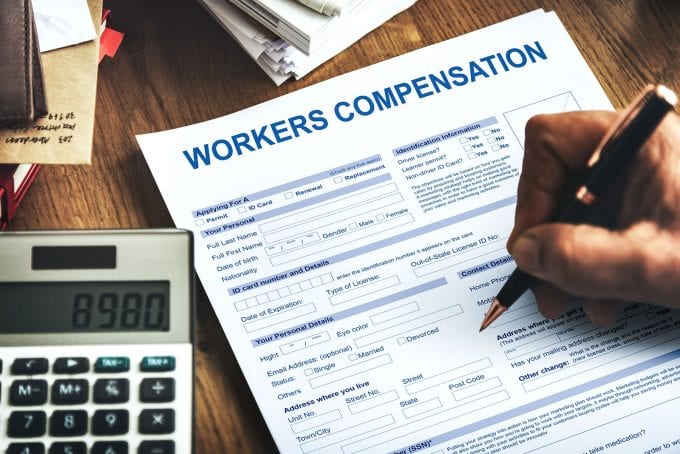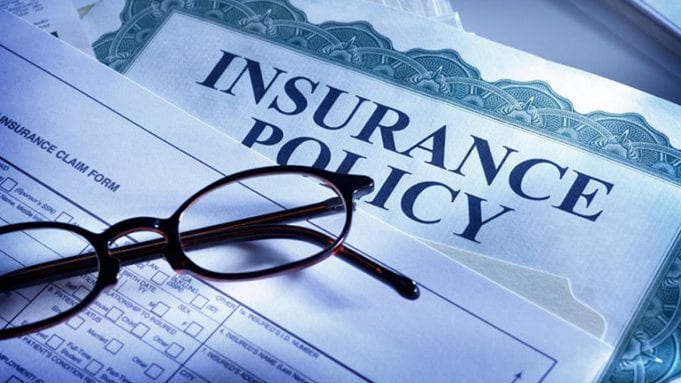Ensuring you have the right insurance for your business can save you so much time dealing with paperwork, legal fees, and general stress. What a successful business ensures is that it is following the proper insurance policies as well.
These policy needs or requirements are different from business to business, as each business has specific requirements. Every business requires some form of insurance policy, or multiple policies, to meet the needs of, and protect the business. Having a business without any protection from litigation or accidents can be a disaster.
As stated earlier, a business without any protection from unforeseen accidents or legal problems is not sustainable. If you are starting a business or own a business and need help on what insurance policies your business might need, this is a good place to start.
Here you can learn more about the right insurance for your business, and this article can provide you best knowledge about all types of insurance policies:
1. Workers’ Compensation

Not every business employs other workers, but if yours does or you plan on doing so, you will definitely need workers’ compensation. With Embroker, you can obtain your coverage online and in a matter of minutes. Workers’ compensation ensures that your employees will be paid any wages or a sum of money in their absence from work so that they will be able to sustain themselves while they are not able to work.
This also ensures any long term medical issues that may arise in your employees cannot be used against you. Making sure both you and your employees are protected from problems when it comes to health is something you will need to consider.
Losing employees to injury or accident can harm your productivity and those around them. As a responsible business, you need to maintain a good relationship with employees but letting them know that you value their health.
Although it may cost more to insure each employee, the amount of time and money you can spend on hiring a temporary replacement or paying out of pocket to cover medical costs is a far worse fate.
2. General Liability Insurance
This is also known as commercial general liability insurance, which protects a business from financial losses resulting from third-party claims of bodily injury or property damage. It typically covers the cost of legal defense and any settlements or damages that may be awarded up to the policy’s limits.
Regardless of size or industry, nonprofits need to have this as it provides financial protection in case of a lawsuit. Examples of scenarios that may result in a general liability claim include a customer slipping and falling on your business premises or damage to a third party’s property caused by your business operations. Check out the coverage before signing on the dotted line if you need general liability insurance for nonprofits.
A general liability insurance policy can help protect your business assets and provide peace of mind since it allows you to focus on running your business. It’s essential to consult with an insurance professional to determine the appropriate coverage limits for your business and any additional coverage that may be necessary based on your specific needs and risks.
3. Vehicle Insurance

If your business requires the use of vehicles for transportation, delivery, or any business-related activities, you will need insurance specifically to cover that. This means that your business’s transportation needs for employees or clients have to be covered by a policy. This is to protect business vehicles, and employee and customer health. Make sure to get one with comprehensive coverage. This pays for damages to your vehicle caused by theft, vandalism, or natural disasters.
It becomes even more important to get an insurance policy when your business requires vehicle insurance for food delivery. This applies to catering services as your vehicles need multiple forms of insurance. According to moneyexpert.com, this can include policies to cover food handling and refrigeration units. Knowing what policies you need, if they’re multiple ones, can save your business a major amount of work trying to protect its interests.
Maintaining a strong stance on safety when dealing with vehicles in the workplace, especially meeting or exceeding safety standards for food vehicles, is integral to a good business. Catering vehicles can pose their own challenges, but coupling insurance policies that focus on vehicle coverage will allow for more streamlined insurance policies. Less paperwork the better.
If you run a business, you know how much this can slow down your daily workflow. Covering any potential vehicle-based liabilities, assuming your business needs to, will help you in the long run.
4. Product Liability Insurance

If your business is responsible for producing products, you want to make sure that your insurance policy covers any potential problems when it comes to their quality. This insurance policy is vital if you sell or produce products for all kinds of consumption. Regardless of your market is private buyers like the government or the general public, you should have it protected.
You can create the best products to your abilities, but there are some instances where even the most preventative steps can’t stop a faulty product. This product may be faulty in a minor way, but when the result is an injury or potential harm to a customer or client, you can land in hot water. That is the purpose of product liability insurance. It’s to ensure your business insurance policy is pre-active in stopping any potential litigation against you because of product safety.
Much like worker’s compensation, you do not want to deal with the disastrous repercussions of a lawsuit filed against you. This is especially disastrous when the legal action taken against you is by a member of the general public. They may try to receive a hefty financial compensation, so avoiding any faulty product issues, or insuring yourself with a product liability policy, will keep you out of hot water.
5. Property Insurance

This insurance policy is necessary if your business has a physical location or uses some form of property for operations. Rental or ownership affects how your insurance policy will look, but you need to have control over your place of business.
If you have a property that is part of your business, any damage done to it can be fatal to your business. Fires, floods, or natural disasters can destroy the property and leave you cleaning up a big mess. Typical property insurance isn’t covering you for disasters, but you should consider it on top of property policies.
Although the likelihood of an earthquake is much less than fire, you should be prepared for any situation that impacts your business’ operations. Property insurance covers you for the maintenance of equipment, and any inventory which can all be damaged by likely culprits like theft or fire.
Running a successful business means knowing what insurance policies you need to protect your assets and properties. Knowing what issues can arise in a business is a good way to keep ahead of the curve. Keeping all assets and properties protected means you can operate your business with peace of mind, which gives you a stress-free work life.
Insurance policies can range in how much or little they cover, or how specific an issue is covered.
Workers’ compensation can cover any medical hardships to workers, vehicle insurance to protect any accidents or food industry needs, product liability insurance to keep any potential product safety concerns in check, and property insurance so that your place of business is protected from fire or theft.









